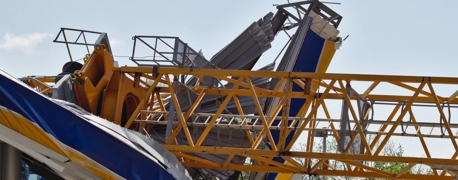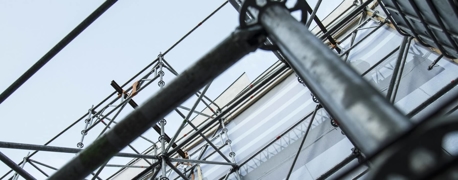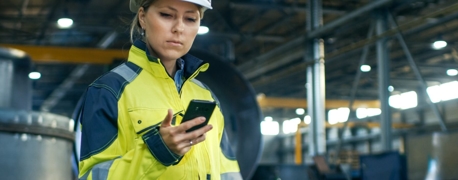Top Hazards for Steelworkers

Steelworkers, along with ironworkers, provide an essential role in our society by constructing frameworks for many buildings, along with other metal products. Per the Bureau of Labor Statistics, there were over 58,000 structural iron and steelworkers in the U.S. in 2012 in an industry that's quickly growing. However, these workers face many dangers while on the job, and the rate of injuries continues to rank steelwork among the most dangerous careers.
Common Steelworking Injuries
Steelworking is an occupation that involves physically demanding work in potentially hazardous conditions, such as at heights or involving heavy machinery and tools. When safety standards are not followed and steelworkers are not given the proper personal protective equipment (PPE), they can be seriously injured. These life-threatening injuries can impact their ability to return to work and even perform normal day-to-day activities.
Steelworking injuries may include:
- Burns – Steelworkers can receive serious burns as a result of welding, sparks flying, and the flammable materials that they often work with. Even a minor burn can be extremely painful and require medical care.
- Muscle Injuries – As is the case with many construction and industrial jobs, steelworkers are often required to move heavy loads or perform difficult manual labor. In addition to isolated incidents, repeating these tasks over time can cause workers to develop muscle injuries.
- Falls – Especially at construction sites, workers must often perform their duties in high places or on cranes. Falling from a high place can cause life-threatening injuries or debilitating harm.
- Impalement – Steelworkers may be at risk of being impaled by exposed rebar, forklift tines, or projecting equipment and materials at a worksite.
- Cuts – While working with metallic corners and instruments, workers face the possibility of cuts, which can lead to muscle scarring, infections, and other complications.
- Crush Injuries – Structural collapses and falling or swinging objects during hoisting and rigging operations can cause serious crush injuries to steelworkers at a job site.
- Amputation – Steelworkers may be at risk of losing limbs or appendages if they are crushed or severed by heavy machinery at a construction site or by tools like metal shears.
- Death – Some steelworking injuries are so severe that they claim a worker’s life. This can happen as the result of a structural collapse, head trauma, fall, impalement, or another traumatic event.
These incidents can be prevented by providing proper protection for steelworkers.
Protection for Steelworkers Is Crucial
Safety equipment and proper training are imperative in minimizing injuries at steel and ironworking sites. Workers must have sufficient training on steelworking techniques, working at heights, using certain equipment, and utilizing safety gear. Worksite supervisors, owners, and operators must comply with applicable state and federal regulations regarding steelworking and the many tasks and types of equipment this entails. They must also provide the right safety equipment for the worker and the job at hand. This can reduce or prevent injury if an accident does occur.
Personal protective equipment and safety gear for steelworkers may include:
- Goggles
- Gloves
- Boots, usually steel-toe
- Hardhats
- Face shields
- Personal fall-arrest systems
- Respirators or masks
- Hearing protection, such as mufflers
When Employers Fail to Protect Steelworkers
If you have been injured while working as a steel or iron worker due to the negligence of a manager, employer, or another responsible party, you may have grounds for legal action. Even if you qualify for workers' compensation, a third party may also be found liable through an independent investigation, allowing you to file a personal injury lawsuit. This opens the door to the recovery of compensation for medical treatment and lost earnings as well as pain and suffering, emotional trauma, and ongoing treatment or care. Considering the severity of steelworking injuries, recovering full economic and non-economic damages can make all the difference in your ability to recover, rebuild, and provide for your family.
Ready to learn more? Our industrial injury attorneys at Arnold & Itkin can review your circumstances and advise you on how to pursue compensation for your damages. Contact us today for a free consultation.


